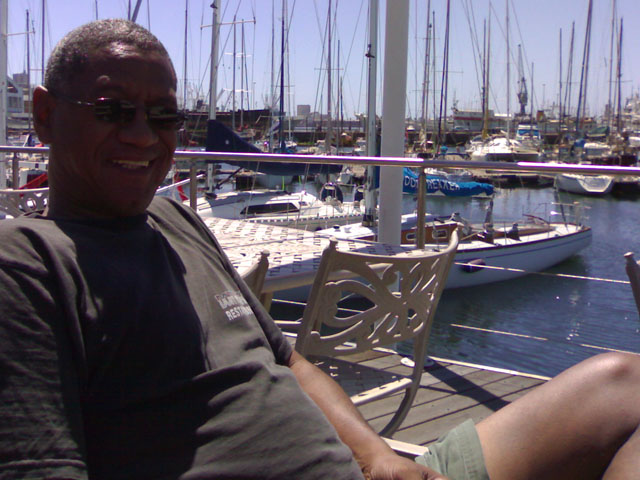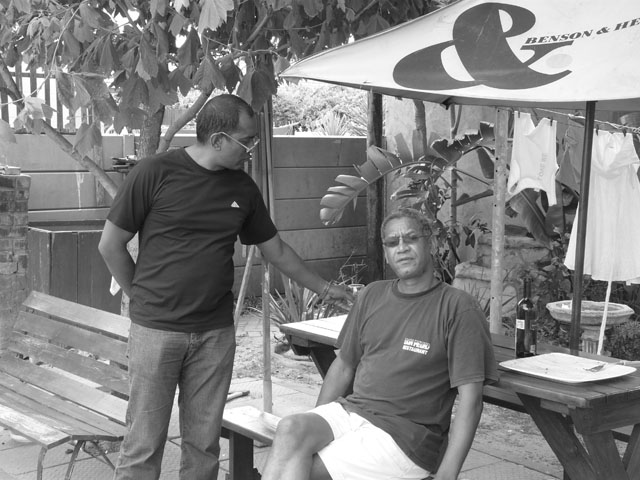"It was the worst of times, it was the best of times; it was the age of foolishness, it was the age of wisdom; it was the epoch of incredulity, it was the epoch of belief; it was the season of Darkness, it was the season of Light; it was the winter of despair, it was the spring of hope; we had nothing before us, we had everything before us …"
It was June 1985. It was the era of the tricameral parliament; of PW Botha’s first State of Emergency; of UDF leaders taking refuge in the British Consulate; of the Soweto Education Crisis Committee; of the founding of the Weekly Mail (now the Mail & Guardian).
There were 12 of us — young black journalists from around the country who had never received any formal training. Boston University’s College of Communication in association with the United States South Africa Leadership Exchange Programme was trying to fix that. For the next six weeks, all of us would be press-ganged into levels of professionalism we had not dreamed of. Among us were Bessie Tugwana, Sipho Ngcobo, Rashida Dhooma, Doctorson Tshabalala, and many others whose names I temporarily forget.

Then, it became time to put those skills to the test. Erstwhile soccer boss Abdul Bhamjee, then recently evicted from the ranks of George Thabe’s National Professional Soccer League, volunteered to subject himself to interrogation by the twelve of us at a simulated press conference. We spent the next 24 hours trolling through the clippings detailing Bhamjee’s dismissal. We gathered at the conference venue. Bhamjee was welcomed. And the first hand shot up with the first question:
Questioner: Mr Bhamjee, I understand it was Clause 19 of the NPSL constitution that was used against you by the NPSL. Were you expecting that?
Answer: I don’t remember what Clause 19 of the constitution said. Please refresh my memory?
Questioner: “… uh …”
And that paraphrased interchange, I am convinced, was the start of what became Ronnie Morris’ life-long obsession with getting his facts right. For the remainder of the course, Ronnie’s entry into any communal space would be greeted by hoots of “Mr Morris, how’s Clause 19?” He was mortified and gave a clear sense of “never again!”
It would be two days later that the young reporter from the Cape Times and I got to spend quality time together. As part of the course, each of us had the opportunity to spend time working at a newspaper of our choice. And Ronnie and I found ourselves heading off in the direction of Die Vaderland. “Why Die Vaderland?” he asked me. “I want to see how the Boers run their operation,” I said. “Me too,” he said.
It was an eye-opener. We were welcomed into the heart of the operation with an openness that neither of us had experienced with the English press. (Understand that The Star still had separate canteens for blacks and whites in the 80s.) Then editor of the paper Harald Pakendorf proved to be erudite and charming. And as Ronnie and I headed home that evening, we shook our heads in disbelief. “We,” said Ronnie, “have got a lot to learn.”
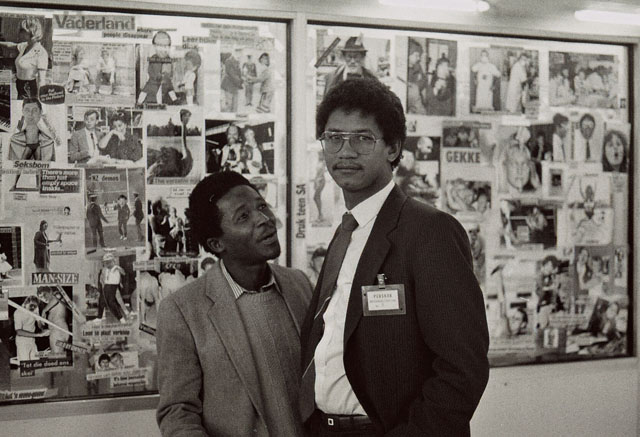
It was a shared understanding that cemented our friendship and saw the start of many evenings since spent consuming vast quantities of alcohol and cigarettes while solving the problems of the universe. I went back to Durban and he went back to Cape Town but we remained in touch. I visited him in Cape Town months later and he introduced me to the Cape Flats and Manenberg and jazz. He was going to visit me in Durban when PW Botha hit us with the second State of Emergency. And I left the country. During my absence, things changed.
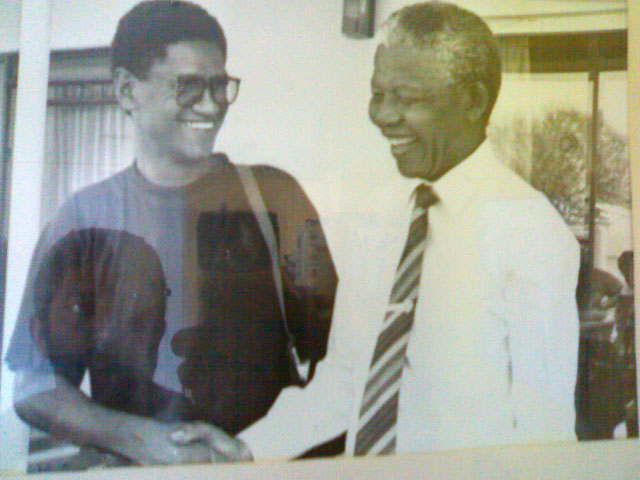
It was almost a decade later that I knocked on Ronnie’s door in Woodstock, Cape Town. His house was in disarray. His marriage had recently ended and his wife Jacqui had moved out with daughters Jay-Allen and Roxanne. “Sorry man,” he said. “We have to go out for food.”
“Everything is but the will of Allah,” I replied.
He laughed as only he would laugh — with a knowing whimsical smile. That expression — “Everything is but the will of Allah” — would become one of his trade marks from that point forward. Soon we were walking over to Don Pedro in Woodstock, our conversation proceeding as though it had never stopped in the intervening years.
He had already developed a reputation at that stage as the foremost court reporter in the Western Cape and probably one of the most knowledgeable writers on judicial matters in the country. He was certainly the most connected. On each visit, I found myself being introduced to people who were pillars of the legal fraternity. Siraj Desai, Nathan Erasmus, Sandile Ngcobo, Jeannette Traverso, Percy Sonn, Bash Waglay, John Hlophe … I was welcomed into their presence for only one reason — that Ronnie Morris introduced me as “My friend Kanthan Pillay”.
I moved to Cape Town shortly thereafter, joining Ryland Fisher’s team at the Cape Times as managing editor. Mr Morris was at that time night news editor but soon to move into the position of justice writer. We found ourselves sitting on opposite sides of conflicts — he as a tireless organiser for the SA Union of Journalists and me as the managerial bean counter. The fights during the day were frequently vicious. And at nights, we would break bread, and share wine, and laugh.
We both left the Cape Times to go in new directions, me to e.tv and Mr Morris to Business Report. We continued to meet at St George’s Mall at lunchtime at the House of Coffees. When I launched the eNews Learnership Programme, Mr Morris gladly volunteered his services. He shared his knowledge as only the best teachers can, taking our young interns into the depths of the Cape High Court, introducing them to all and sundry including knocking unannounced on the door of judges’ chambers. He was welcomed wherever he went.
Mr Morris became known (and feared in some quarters) for his passion for writing about the downtrodden. I for one believe that the pyrrhic court victory of asbestosis victims in the Northern Cape would never have come about were it not for his tireless crusading journalism. Many remember his determination to ensure that those responsible for the demise of the Health and Racket Club were brought to justice because of the loss of empowerment funds.
I, on the other hand, knew him as the lover of wine, women and song. He would stockpile selected wines for my visits to Cape Town and break them open with glee, speaking at length about the quality of the grape, the soil, and what he thought of the winemaker. He was equally at home with the subtlety of smoked salmon or the brashness of snoek on the braai.
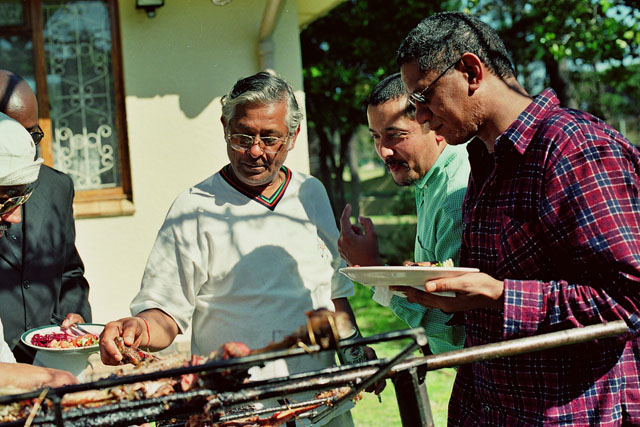
And then there was the classical music — Mozart was meant to be enjoyed loudly in Mr Morris’ space, and he would shake his head in appreciation while miming conductor movements. And he would then break out the books. We were both voracious readers. Our bookshelves dominate our living rooms. And we would swap books between us with glee. I know of several of his books lining my shelves, as mine do his.
And then, on the afternoon of April 12 2008, his number flashed on my phone. “Morris?” I answered in a slow drawl as we have become accustomed to doing over the years.
It was not him. It was Najwa, his lover. Ronnie had taken his afternoon nap and died in his sleep with a smile on his face.
I still find myself spontaneously breaking into tears as I write these words.
That he was a truly remarkable human being is borne out by the who’s who of the Western Cape who packed St George’s Cathedral for his funeral to pay their respects in a manner befitting a head of state. Every member of the provincial judiciary without exception signed the tribute to Ronnie leading me to remark that only Mr Morris could have brought unity to that division for any reason. Business Report lost its Cape editor. Journalism lost one of its finest sons.
But I have lost a friend and brother of more than twenty years standing. Our friendship had outlasted our respective marriages, seen the deaths of our respective fathers, seen our daughters growing to young womanhood in each others’ homes while we spoke to each other of our pride in them in a way that fathers can do only when their children are not around, and finally found peace in that companionable silence where one is able to spend time in the company of a friend, taking delight in their presence without needing to say anything.
Today is Ronnie Morris’ birthday. He would have been 49. I don’t believe we will meet again. I don’t believe in an afterlife. I do believe that we only get one shot at this life and what we do with that is up to us, and I am deeply appreciative of the years that we did share.
Happy birthday Mr Morris. I will drink to your memory tonight. And I will give thanks to Clause 19 of the NPSL constitution which tripped you up so that we could become friends.
Ronald Lewis Morris — 22 August 1959 – 12 April 2008
- Both Rams Mabote and Ryland Fisher have written tributes to Mr Morris at Thought Leader.
- Mr Morris’ Court and Legal Reporting Guidelines is recommended reading for anyone wanting a comprehensive brief overview of the judicial system.
